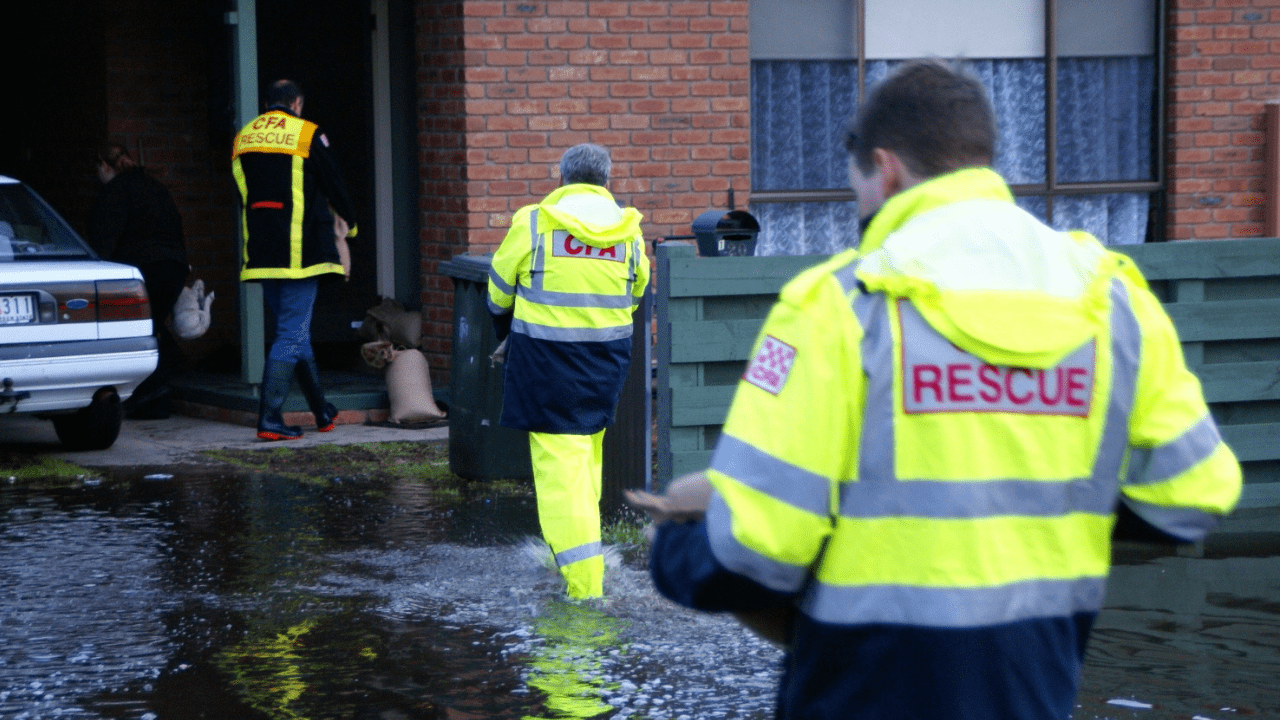What to do after a disaster
1. Stay safe
If your home has been flooded, always take care. Do not enter your home or turn on the power until a qualified expert - such as an electrician, fire officer or a council building inspector - confirms it is safe to do so.
Stay alert for hidden water damage after a flood: prolonged moisture can rot timber, corrode metal fixings and ultimately weaken your home’s structural frame. Mould can start growing on damp surfaces within 24-48 hours, so colonies often appear days or even weeks after the water has gone.
Discard any food that has lost refrigeration or been touched by floodwater. Flood contamination can make food unsafe even when it looks and smells normal.
If a vehicle has been affected by water damage, don’t drive it until it has been checked by a mechanic.
2. Contact your insurer
Get advice on the claims process and how you can access temporary accommodation and emergency repairs if you need them.
Should you need an extension to your temporary accommodation, you should talk to your insurer at least three months before your accommodation period ends.
3. Take photos
Before cleaning up, take photos and list all the damage.
4. Make your home safe and secure your property from further damage
Take safe and reasonable steps to protect your home and belongings from more damage. This could include moving non-damaged items to a safe place or putting a tarp over them.
5. Clean up your home, if you can do it safely
Remove any damaged items from your home that could be a health risk, such as fabric couches and carpet.
Take safe and reasonable steps to protect your home and belongings from more damage. This could include moving non-damaged items to a safe place (such as under cover or to higher ground) or putting a tarp over them.
What documents will you need?
- Contact details: Information for your insurer or your insurance broker.
- Insurance policy numbers: Relevant policy numbers and documentation.
- Identification: Your ID and any passwords or security questions associated with your account with your insurer.
What if my insurance information has been lost or destroyed?
If you remember your insurer’s name, call them and give your details (your name, address and date of birth) and they will be able to help you and you can ask for a copy of your policy.
If you don’t know your insurer’s name, you can call the Insurance Council of Australia on 1800 734 621 and they can help find the information for you.
Handy tip
Store your important documents in a weatherproof and fireproof bag or safe. This is particularly important if you live in a fire or flood prone area.
Understanding the steps in the insurance claims process
If your claim is approved
If your claim is approved, you will receive a report outlining the work to be done to your home. Read the report carefully to see what will be replaced or repaired, and what won’t. If you are not happy with the report, contact your insurer. If you are happy with the offer and agree to the terms, your insurer may offer to manage the work, offer you a cash settlement or offer both as options.
If your claim is denied or you’re unhappy with the outcome
Customers can lodge a complaint with the insurer at any point during the claims process.
If your claim is denied or you are not satisfied, the insurer must explain why and give you information on how to file a complaint.
If you make a complaint to your insurer and you’re still unhappy, you can complain to the Australian Financial Complaints Authority (AFCA).
If you need help with an insurance dispute
Financial counselling is a free, confidential and judgement-free service for people experiencing or at risk of financial hardship. There are no access restrictions based on income source, visa status or residency status.
If you or someone you know has a debt or bill that they are worried about, they could benefit from a confidential appointment with a financial counsellor. Financial counsellors can also provide advice on insurance disputes.
Australian Financial Complaints Authority
Website: afca.org.au
Phone: 1800 931 678
Email: info@afca.org.au
National Debt Helpline
Website: ndh.org.au/financial-counselling
Phone: 1800 007 007
Handy tip
The General Insurance Code of Practice sets out what insurers should do when handling your claim, including timeframes for decisions and updates of your claim status.
Disclaimer: The information provided on this website is intended for general information purposes only and no reliance should be placed on its contents or accuracy. It is not a definitive guide and is not intended to constitute legal or financial advice and does not take into consideration your particular circumstances or needs. If you require assistance in respect of your personal circumstances, please seek independent advice. In an emergency, please also contact official sources for information. Every effort has been made to ensure the accuracy and completeness of this page and the references to the links included within it. However, we cannot guarantee that the information is complete, current or free from errors. We do not control, endorse or take responsibility for the content of any external websites linked on this page.
Updated

